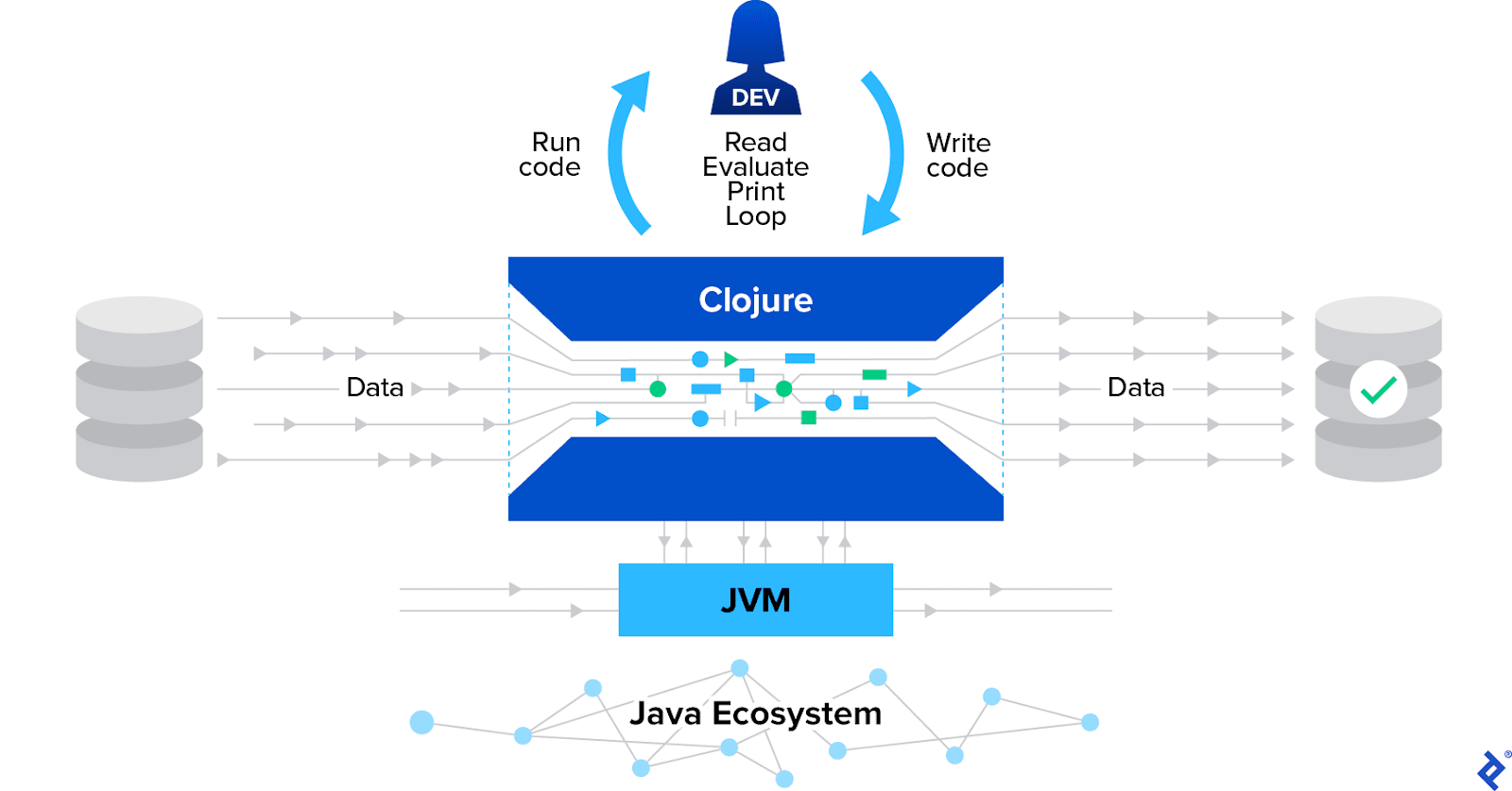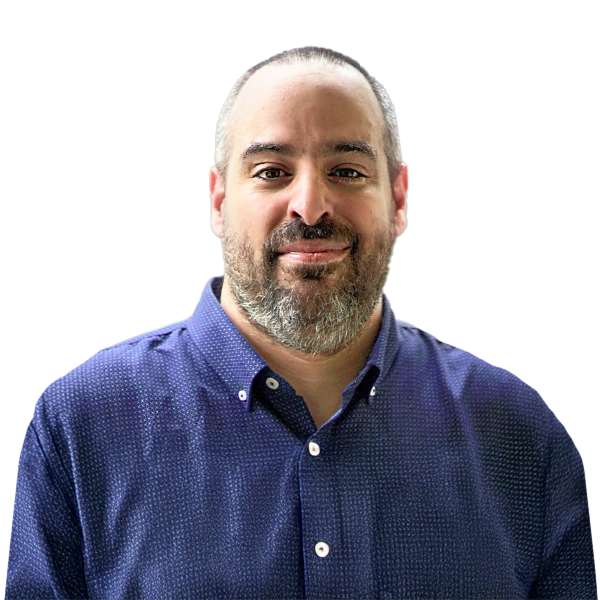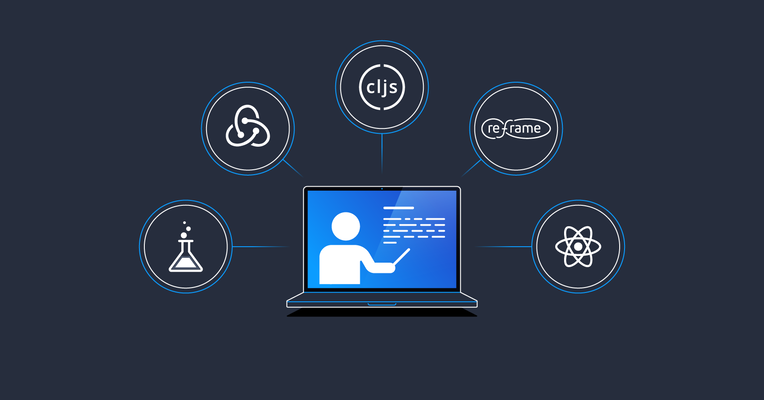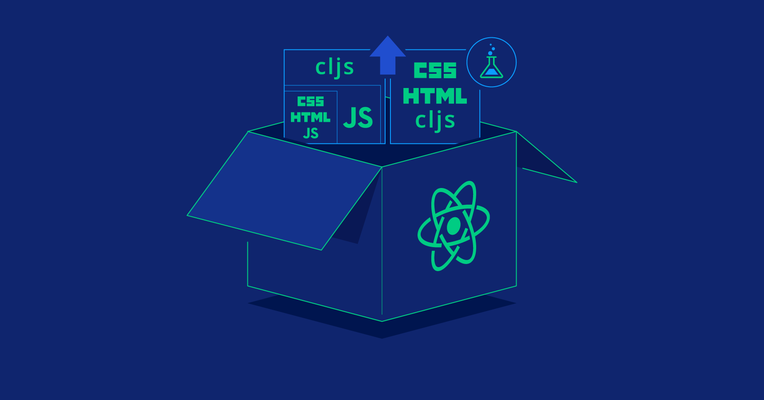
Hire Clojure Developers
Hire the Top 3% of Freelance Clojure Developers
Toptal is a marketplace for top Clojure developers, engineers, programmers, coders, architects, and consultants. Top companies and startups choose Toptal Clojure freelancers for their mission-critical software projects.
No-Risk Trial, Pay Only If Satisfied.
Hire Freelance Clojure Developers
Li Chen
Li is a skilled full-stack developer with expertise in Clojure, ClojureScript, Java, Python, Rust, and Go. He has built web apps for education, IoT, and blockchain industries. Currently, Li focuses on blockchain security auditing and application development, utilizing his proficiency in multiple programming languages to deliver robust solutions. His track record of delivering exceptional outcomes underscores his commitment to high-quality solutions.
Show MoreIgnacy Moryc
Ignacy is a confident and capable software engineer with more than 13 years of experience leading teams and developing applications. Throughout his career, he has worked with a variety of technologies, including Ruby on Rails, Go, Java, and Clojure. He has been an integral part of successful projects where he worked on complex legacy code bases. He communicates well and has led and worked on teams of all sizes.
Show MoreTristan Döhl
Tristan is a freelance JavaScript developer with several years of experience with React, Redux in the front end, and Clojure in the back end. He's skilled in using Kubernetes and Docker for continuous integration and delivery and web application development, focusing on modern technologies that improve the client's workflow and decision-making process.
Show MoreJeremy Storm
Jeremy is a passionate, forward-thinking full-stack developer who primarily works in Clojure and ClojureScript. He is always excited by new opportunities to create innovative and difficult projects and enjoys the thrill of seeing a successful project launch.
Show MoreJesús Espino García
Jesús is a full-stack developer with a lot of experience in software development. His primary languages are Python and JavaScript, but he's essentially a polyglot so he knows other languages like Clojure or Rust.
Show MoreVladimir Mitrovic
Vladimir has been a professional developer for 11 years. Most recently, he's focused on augmented reality, computational design, and computer graphics. He has architected complex software systems, designed UX, led teams, and spoken at conferences. Vladimir values simplicity and efficiency and loves working on interactive products, no matter the platform.
Show MoreEric Honsey
Eric is a polyglot programmer passionate about using functional, modular design to meet challenging business objectives. He has experience working as a back-end engineer, data engineer, and team lead in multiple environments that rely on team members' expertise, adaptability, and trust to achieve high impact. His excellent communication, teamwork, and technical skills help him design and deliver outstanding results.
Show MoreVictor Gil
Victor is a seasoned full-stack developer with 18+ years of experience building software for clients such as Y&R, Bancolombia, and Orbitz Worldwide. He's proficient in the Java platform and Spring framework and passionate about functional programming, leveraging Clojure and ClojureScript in his most recent projects.
Show MoreÁlvaro Castro-Castilla
Álvaro has more than 13 years of experience in software development, six specializing in distributed systems, back-end architecture, and microservices. His primary language is Go, but he loves coding in Rust, Clojure, and Python. Thanks to an interdisciplinary background, including entrepreneurship, Álvaro has experience turning ideas into reality, tackling technically challenging projects and leading a small team to accomplish it, as well as effectively developing MVPs.
Show MoreJohn McConnell
John is a professional developer whose duty is to understand his client's unique needs and make them a reality. The different hats he wore to help his team thrive include solo developer, team mentor, project manager, product manager, and CTO. He developed a network forecasting and allocation pipeline, sports party game, SAT education platform, resource management system for deployed assets, social networking application with content feeds, real-time chat, and dynamic content subscriptions.
Show MoreStephane Labruyere
Stephane is a French software engineer who has been living in Australia for the past three years. His work has been primarily at startups on back-end and data projects for the past five years. Stephane is predominantly interested in climate and energy technologies and, more generally, in projects that positively impact the world.
Show MoreDiscover More Clojure Developers in the Toptal Network
Start HiringA Hiring Guide
Guide to Hiring a Great Clojure Developer
Clojure developers are experts in building robust, scalable, and high-performance applications, particularly for web development and data analysis. This guide to hiring Clojure developers features questions and answers for interviewing applicants and best practices to help you identify the top candidates for your company.
Read Hiring Guide... allows corporations to quickly assemble teams that have the right skills for specific projects.

Despite accelerating demand for coders, Toptal prides itself on almost Ivy League-level vetting.









How to Hire Clojure Consultants Through Toptal
Talk to One of Our Client Advisors
Work With Hand-selected Talent
The Right Fit, Guaranteed
EXCEPTIONAL TALENT
How We Source the Top 3% of Clojure Developers
Our name “Toptal” comes from Top Talent—meaning we constantly strive to find and work with the best from around the world. Our rigorous screening process identifies experts in their domains who have passion and drive.
Of the thousands of applications Toptal sees each month, typically fewer than 3% are accepted.
Capabilities of Clojure Developers
Clojure developers design scalable web applications, implement immutable data structures, and build concurrent systems with frameworks like Compojure, Luminus, Ring, and core.async. Their expertise ensures reliable performance and simplified codebases, accelerating delivery and enabling businesses to deploy APIs, microservices, and data-driven applications that adapt to real-time and scale to meet enterprise demands.
Functional Web Application Development
Immutable Data Structure Design
RESTful API Construction
Concurrent and Parallel Code Implementation
Microservice Architecture Development
Data-driven Application Development
Workflow Automation and Scripting
Unit and Integration Testing
Performance Optimization and Code Profiling
Open Source Library Contributions
FAQs
How much does it cost to hire a Clojure developer?
The cost associated with hiring a Clojure developer depends on various factors, including preferred talent location, complexity and size of the project you’re hiring for, seniority, engagement commitment (hourly, part-time, or full-time), and more. In the US, for example, Glassdoor’s reported average total annual pay for Clojure developers is $119,435 as of June, 2023. With Toptal, you can speak with an expert talent matcher who will help you understand the cost of talent with the right skills and seniority level for your needs. To get started, schedule a call with us — it’s free, and there’s no obligation to hire with Toptal.
How quickly can you hire with Toptal?
Typically, you can hire Clojure developers with Toptal in about 48 hours. For larger teams of talent or Managed Delivery, timelines may vary. Our talent matchers are highly skilled in the same fields they’re matching in—they’re not recruiters or HR reps. They’ll work with you to understand your goals, technical needs, and team dynamics, and match you with ideal candidates from our vetted global talent network.
Once you select your Clojure consultant, you’ll have a no-risk trial period to ensure they’re the perfect fit. Our matching process has a 98% trial-to-hire rate, so you can rest assured that you’re getting the best fit every time.
How do I choose the best Clojure developer for my project?
They should have a deep understanding of functional programming concepts and be able to write clean, effective code. Strong web development skills are essential, including knowledge of HTTP protocols, REST APIs, and familiarity with web frameworks like Ring and Compojure. They should understand how to work with databases and have experience in interfacing databases with Clojure. For front-end development, you should seek developers with a solid understanding of HTML, CSS, and JavaScript, and who have experience with React or other modern JavaScript frameworks. Understanding testing methodologies and frameworks in Clojure, such as clojure.test, is paramount. They should be able to write and maintain test cases to ensure code quality and functionality. The developer should also know how to package and deploy applications, have experience with cloud platforms like AWS and GCP, and understand continuous integration/continuous delivery pipelines.
How do I hire Clojure developers?
To hire the right Clojure developer, it’s important to evaluate a candidate’s experience, technical skills, and communication skills. You’ll also want to consider the fit with your particular industry, company, and project. Toptal’s rigorous screening process ensures that every member of our network has excellent experience and skills, and our team will match you with the perfect Clojure developers for your project.
What is Clojure used for?
Clojure is a general-purpose programming language, and can be used for any project. It is particularly well suited for building web applications and data processing, especially if these tasks need to be performed by an existing JVM project.
How are Toptal Clojure consultants different?
At Toptal, we thoroughly screen our Clojure consultants to ensure we only match you with the highest caliber of talent. Of the more than 200,000 people who apply to join the Toptal network each year, fewer than 3% make the cut.
In addition to screening for industry-leading expertise, we also assess candidates’ language and interpersonal skills to ensure that you have a smooth working relationship.
When you hire Clojure developers with Toptal, you’ll always work with world-class, custom-matched Clojure developers ready to help you achieve your goals.
Can you hire Clojure developers on an hourly basis or for project-based tasks?
You can hire Clojure consultants on an hourly, part-time, or full-time basis. Toptal can also manage the entire project from end-to-end with our Managed Delivery offering. Whether you hire a Clojure developer for a full- or part-time position, you’ll have the control and flexibility to scale your team up or down as your needs evolve. Our Clojure developers can fully integrate into your existing team for a seamless working experience.
What is the no-risk trial period for Toptal Clojure consultants?
We make sure that each engagement between you and your Clojure developer begins with a trial period of up to two weeks. This means that you have time to confirm the engagement will be successful. If you’re completely satisfied with the results, we’ll bill you for the time and continue the engagement for as long as you’d like. If you’re not completely satisfied, you won’t be billed. From there, we can either part ways, or we can provide you with another Clojure developer who may be a better fit and with whom we will begin a second, no-risk trial.

How to Hire Clojure Developers
Ross is a full-stack software engineer who specializes in web development. He has served as a lead developer at both large corporations, like Ameriprise Financial, and startups. He used ClojureScript to create an anthropomorphic algebra system that computes the derivatives of calculus problems and displays the steps.
Previously at

Clojure Developer Demand Is Driven by Modern Web Development
Clojure is one of the highest-paid programming languages in the world for two main reasons: It is excellent for building robust and scalable applications for web development and data analysis, and the community of expert Clojure engineers is considerably small, which drives up salaries as companies compete for skilled developers. Only 1.2% of Stack Overflow Developer Survey 2024 respondents reported using the language. While this scarcity is gradually easing, companies posting Clojure jobs still face a challenging hiring scenario.

Due to the language’s capabilities to provide safe concurrency and process real-world data, as well as its interoperability with Java and JavaScript, Clojure developers are valuable assets for companies aiming to build fast and efficient applications.
Unfortunately, its niche focus and novel design have limited its popularity, and companies may find themselves wishing to hire a Clojure programmer without having a specialist who can conduct the interview. To help in that search, this hiring guide presents what skills to look for in a candidate, which questions to ask prospective hires, and what answers best indicate proficiency.
What attributes distinguish quality Clojure Developers from others?
Companies looking to hire developers should ask about familiarity with common Clojure libraries and tools, such as:
- Leiningen: Helps manage three things: dependencies, build configurations, and project tasks—making it easier to develop, test, and package applications.
- Clojure Spec: A library for defining and validating data in Clojure. This is a dynamic language, meaning that it places no build-time restrictions on data, which makes it useful in creating flexible applications. All applications require data verification to avoid issues, which Clojure Spec provides.
- ClojureScript: A Clojure-to-JavaScript compiler. This tool allows developers to build full-stack web development projects that can run on web browsers and in other JavaScript environments, such as Node.js.
- Ring: A library that provides a simple and consistent way to build web applications by representing web requests as Clojure data structures. Ring offers a modular architecture that enables the seamless integration of various pre-built libraries, which are designed to be compatible with each other.
- Compojure: A routing library for Ring that allows developers to define and manage HTTP routes in a concise and idiomatic manner.
A Clojure developer should also be proficient with concurrency control. The language is designed to handle concurrency on the Java Virtual Machine (JVM) in a way that’s often considered more straightforward and safer than traditional methods used in Java. Additionally, a Clojure developer should know the difference between Clojure’s refs, atoms, and agents, and how to use them in transactions to safely update program state.

In addition to proficiency in Clojure, a developer should have a strong foundation in the following areas:
Functional Programming Concepts: As a modern Lisp dialect, Clojure inherits the principles of functional programming, which emphasizes immutability, avoiding side effects and using functions as first-class citizens. In Clojure, developers should understand how to work with immutable data structures, use recursion to solve problems, and employ higher-order functions to create more modular and reusable code. This enables them to write clean, maintainable, and efficient code that takes advantage of Clojure’s functional nature.
Data Structures and Algorithms: A strong grasp of data structures (lists, vectors, maps, sets, etc.) and algorithms (sorting, searching, etc.) helps developers write efficient and effective code. In Clojure, understanding the language’s persistent and transient data structures is essential for creating high-performance applications and ensuring data integrity.
Concurrency and Parallelism: Clojure provides built-in support for concurrency and parallelism through features like atoms, agents, and futures. Developers must understand these concepts to create code that uses multicore processors and optimizes application performance. This understanding helps them manage shared states, avoid race conditions, and write robust, scalable applications.
Web Development: Clojure coders often work on web applications, so familiarity with web development concepts and technologies, such as HTML, CSS, and JavaScript, is beneficial. They should understand the basics of web protocols, web frameworks, and client-side development to build and maintain full-stack applications in Clojure.
Testing: Ensuring the quality and reliability of Clojure code is essential in any development process. Candidates should have experience with testing tools and libraries, such as JUnit and Mocha, to write and run unit tests, integration tests, and others. They should also understand the principles of test-driven development and be able to apply them in their work.
Version Control: Working with a team often requires using a version control system, such as Git, to collaborate on code, track changes, and manage releases. A Clojure developer should be proficient in using these tools, following best practices for branching, merging, committing changes, and resolving conflicts when they arise. This skill is crucial for efficient teamwork and maintaining a consistent codebase.
How can you identify the ideal type of Clojure Developer for you?
One typical characteristic of Clojure developers is that they are primarily senior engineers with more than a decade of professional experience in programming. Their extensive background makes them a valuable addition to any organization. But every engineering challenge is different, so the first step should be identifying your business needs to find the ideal candidate.
After establishing your business case, it’s crucial to evaluate whether a junior- or senior-level Clojure developer is better-suited to your requirements. The scarcity and high salaries of these engineers make it especially important to make the right decision.
Junior Clojure Developers: If your project is relatively small or isn’t particularly complex, a junior developer with a solid understanding of Clojure may be sufficient for the task. A Clojure developer should, first and foremost, be proficient in writing functional, concurrent code. Time spent in other functional languages like Haskell or F# applies to Clojure programming. Developers should be familiar with Clojure’s syntax and data structures, and understand Java and the JVM ecosystem.
Senior Clojure Developers: Complex projects that involve real-time data processing from multiple sources, high volumes of user activity and transactions, architectural decisions, or integration with complex systems call for an experienced Clojure developer. An experienced developer can also help identify potential risks and pitfalls early in the project, allowing for proactive measures to minimize potential issues and ensure success.
How to Write a Clojure Developer Job Description for Your Project
With the desired experience level and skills for your Clojure developer in hand, the next step is finding the ideal candidate. As with most job postings, you’ll want to present a standard set of qualifications and responsibilities. For Clojure, consider using the following framework:
Company Introduction: Write a short and catchy paragraph about your company. Make sure to provide information about the company’s culture, perks, and benefits. Mention office hours, remote working possibilities, and anything else you think makes your company interesting. Remember that Clojure developers are in high demand, so you must present an attractive proposal.
Job Description: Provide a brief overview of your project, outlining the goals, objectives, and overall purpose of the role. Be sure to include specific information regarding the technologies and frameworks your company utilizes and the types of activities and challenges the prospective candidate will be expected to handle. For example, if your project involves building scalable APIs or server-side infrastructure for a SaaS platform, emphasize the need for a backend developer skilled in Clojure to design and implement robust, high-performance server-side solutions that integrate seamlessly with front-end systems or third-party services.
Responsibilities: List the primary tasks and duties the Clojure developer will undertake. These may include:
- Developing and maintaining web applications using Clojure and ClojureScript.
- Implementing APIs and integrating with third-party services.
- Developing algorithms, e.g., to distribute tasks based on competencies and user workload.
- Collaborating with other team members to design, develop, and optimize code.
- Collaborating with cross-functional teams to gather requirements and implement solutions.
Technical Skills: Specify the essential skills and qualifications you need for your particular project. These may include:
- Proficiency in Clojure and ClojureScript.
- Understanding of data structures and algorithms.
- Experience in web development.
- Familiarity with functional programming concepts.
- Knowledge of concurrency and parallelism concepts.
- Strong problem-solving and debugging skills.
Soft Skills: Highlight any soft skills that are unique and essential for the role, beyond the usual soft skills of strong communication, teamwork, adaptability, and attention to detail.
Depending on the project, experience with complementary technologies can also be valuable. For example, a candidate might demonstrate fluency in version control and collaboration using GitHub, containerization with Docker, or deployment to cloud platforms like Heroku. Knowledge of databases such as MongoDB and MySQL can support data persistence, while familiarity with languages like Golang may indicate versatility in working across different environments and integrating Clojure into broader system architectures.
What are the most important Clojure interview questions?
Having a list of questions for the interviewee when hiring for a Clojure developer position is essential to assess their technical skills, problem-solving abilities, and growth potential. The following questions can help you make a more informed hiring decision:
What is the difference between Clojure and Scala?
Clojure and Scala have similar feature sets. They both run on the JVM, allowing them to interoperate with JVM projects, and they are both functional languages, allowing for robust, concurrent data processing. Scala, however, is a statically typed object-oriented language, whereas Clojure is a dynamically typed data-oriented language. This allows Clojure to be more concise and flexible in some contexts, whereas Scala may provide faster development in other contexts.
What web framework should I use in Clojure?
An option for simple projects is to build a framework from scratch. Creating a framework gives developers complete control over the supported features, and it’s not as difficult as it may seem. On the other hand, most pre-built frameworks are robust but require understanding the many libraries chosen by their authors. Pedestal might be a good fit if the team requires a flexible, modular, and extensible solution for building web applications. It is particularly well-suited for developing API-driven services, as it was designed with this use case in mind. Other comprehensive web frameworks to consider are Luminus and, although not technically a framework, Compojure.
Can you describe your experience with debugging in Clojure, including the tools and techniques you have used?
Debugging in Clojure can be quite different from debugging in other languages due to its functional paradigm with immutable data structures. Clojure’s read-evaluate-print loop (REPL) allows developers to enter, evaluate, and see the results of code snippets in real time. The REPL provides a convenient way to explore language features, test ideas, and debug code without having to write, compile, and run an entire program.
There are other helpful tools for debugging, like CIDER, a powerful Emacs package that integrates with the REPL and provides features like interactive evaluation, code completion, and debugging support; and Cursive, an IntelliJ plugin that provides a powerful and feature-rich development environment for Clojure and ClojureScript.
Have you used any libraries or frameworks for web development in Clojure, such as Ring, Compojure, or Luminus?
Look for candidates who have used Ring, Compojure, and Luminus for various web development projects in Clojure. Ring is a foundational library for handling HTTP requests and responses, while Compojure is a routing library that simplifies route definition and request handling. Luminus is a more comprehensive solution, combining several libraries to provide a complete web development experience, including templating, database access, and state management.
Have you worked with other functional programming languages like Haskell or Elixir? If so, how does your experience with these languages inform your work with Clojure?
Haskell and Elixir, like Clojure, emphasize immutability, higher-order functions, and expressive syntax. Haskell can provide understanding of type systems, algebraic data types, and the benefits of static typing. Elixir can provide insights into the power of the Erlang VM, the actor model, and the fault-tolerant design of concurrent systems. This knowledge can help in understanding the trade-offs between static and dynamic typing, as well as concurrency and distributed system design for Clojure.
Do you have experience with version control systems such as Git, and can you describe your workflow when collaborating on code with a team?
A typical Git-based workflow begins with submitting an issue to the repository, then outlining the problem and the proposed solution. Upon receiving approval from collaborators, the repo is forked into a personal account and cloned to a local machine. Modifications are made and committed to the code locally. When the developer is satisfied with the changes, they push them back to the forked repo, and a pull request is submitted to the main repo, requesting a review from the team. Any suggestions or requested changes by the team are addressed by the developer in their local branch. These modifications are then pushed to the forked repository, which automatically updates the pull request. After all recommendations are adequately addressed through necessary iterations, the pull request can be merged into the main repository.
Why do companies hire Clojure Developers?
On average, Clojure developers have more experience with different languages and skill sets than any other software engineer, making them a valuable asset for any company and putting them in higher demand than most developers. Their expertise in building robust, scalable, and high-performance applications, and their ability to handle complex data processing, integration with existing JVM-based systems, and efficient concurrency control make them ideal candidates for companies in many sectors.
Expert Clojure developers can take advantage of the language’s functional programming paradigm, which emphasizes immutability and can lead to more maintainable and less error-prone code. Clojure’s powerful concurrency features, such as software transactional memory and asynchronous programming, enable the development of high-performance, scalable applications, making it particularly valuable for companies building concurrent and distributed systems.
Furthermore, Clojure’s interoperability with Java and JavaScript (among other platforms, like .NET) allows developers to seamlessly work with existing Java codebases, libraries, and frameworks. At the same time, ClojureScript provides an avenue for building web applications that run on the JavaScript platform. This versatility makes Clojure programmers an asset in full-stack web development and particularly valuable when managing complex Clojure projects that must integrate with other technologies or legacy systems.
You should hire a Clojure developer:
- When building a complex, data-intensive application that requires a high level of performance and reliability. Clojure is designed to process interdependent data in parallel safely, and a skilled Clojure developer will have the expertise to leverage the unique features of the language to deliver a reliable and performant application, no matter the data throughput requirements.
- When building an application for the Java Virtual Machine. Clojure’s ability to effortlessly interoperate with other JVM languages is highly advantageous when integrating your application with existing JVM-based systems or leveraging the numerous libraries and tools available in the JVM ecosystem.
- When building systems that demand efficient handling of concurrent and distributed operations. For example, a real-time financial data processing system would need to handle large volumes of streaming data, such as stock prices or trading transactions, coming in from multiple sources. Clojure can process and analyze this information quickly to enable real-time decision-making, such as triggering automated trading algorithms or alerting users to potential investment opportunities.
- When performing complex analysis of large data sets. Clojure’s functional programming paradigm, immutability, and lazy evaluation make it well-suited for data processing and manipulation tasks. Interoperability with the Java ecosystem enables developers to leverage powerful Java libraries, such as Apache Spark, Hadoop, or Flink, for big data processing.
Clojure’s features have attracted many big names—such as Amazon, Apple, and Netflix—to use it in their tech stacks. Clojure developers particularly suit sectors like fintech and enterprise software, where more than 40% of Clojure Developers are concentrated. However, hiring a Clojure developer can help any kind of company jump-start a new project or accelerate its development cycles.
Featured Toptal Clojure Publications
Top Clojure Developers Are in High Demand.




















